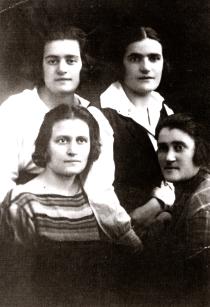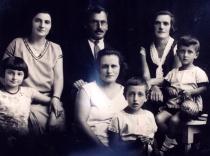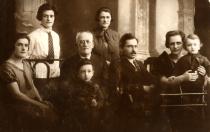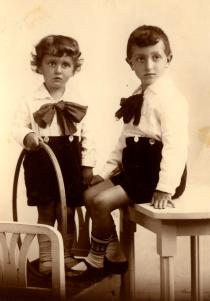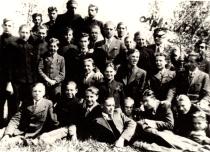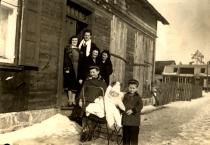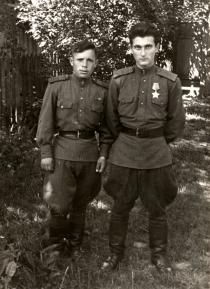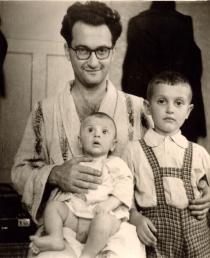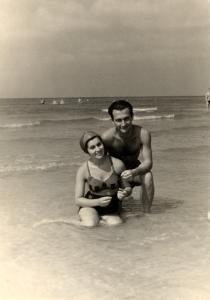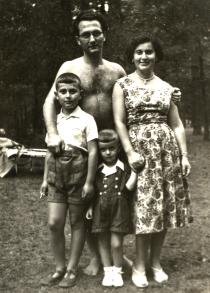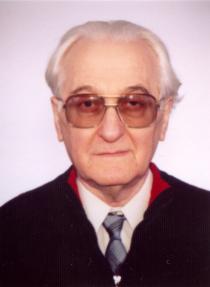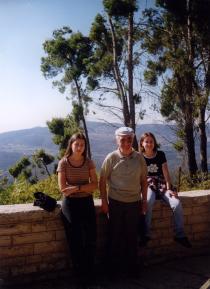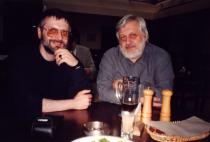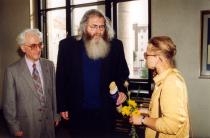This is my passport picture taken in the middle 1970s in Vilnius.
In 1946 I was given a small two-room apartment with a kitchen, but without conveniences. Finally, we had our own house and we settled there with mother. I had been writing the requests on demobilization, but they were returned to me unsigned. I was demobilized only in 1947. I was happy. The only thing for me to do was to find a job and go to the institute. One good fellow soldier helped me get a job as a literary worker at the paper 'Sovietskaya Litva'. [Russian language Lithuanian newspaper. Between 1944 and 1990 it came out six time a week in 70,000 copies daily (1975)].
The same year- 1947 - I submitted the documents to the Vilnius university, Physics and Mathematics Department. The pro-rector, responsible for academic studies, an inveterate anti-Semitist, told me: 'you studied at the Teachers' Training Institute. Take another attempt'. But I was helped by the party organizer of the university, who was from Mazeikiai. He knew my father very well and insisted that I should be admitted to the second course as I was the member of the party and a front-line soldier. Students of those years did not look like modern students. At that time we were adults having gone through war. I was also responsible for my mother. She could not work, so I was the only bread-winner. When I was in the third year I was employed by Chair of Marxism and Leninism as teachers' assistant. There was a lack of teachers in social studies Lithuania, who were fluent in Lithuanian and Russian languages. On the third course I was appointed as an assistant to the teacher in Marxism and Leninism. There were 3 students-teachers in the entire university, including me. Upon graduation I successfully defended my diploma and I was not to worry of the mandatory job assignment. They even did not ask what I would like to do. I remained teaching at the university. I had worked in the university by 1989.
I am happy in my private life. I met a wonderful Jewish girl at the university. Polina Aibinder was the student of the medical department. We had a lot in common. Both of us were born in small Lithuanian towns. She was born in Kupiskis in 1930. Her father Zelik Aibinder was a tailor and mother was a housewife. Polina had a sister Rosa Aibinder. In 1941 Polina and her parents left the town and were evacuated in Chuvashia. Upon return Polina's family settled in Vilnius. Polina and I started seeing each other. In 1951 we got married. We had a very modest wedding. We registered our marriage in a regional marriage registration office and had a small party with closest people in my aunt's apartment as there was no room in our apartment. We moved in my mother's place. In 1952 our elder son came into the world. We named him David after my brother. Our second son Ilia was born in 1957. Our family lived the way all common families lived by the soviet regime- from check to check. We did not have any riches, but our life was pretty decent. My wife worked as a doctor. Children, like others, went to the kindergarten, then to school.
We went on vacation every year, sometimes with children. Like most people from Vilnius we went to the spas in Palanga [popular resort in Lithuania on the coast of the Baltic Sea]. We got trade-union travel vouchers and had to pay only 30% of the trip, so we could afford to take a vacation every year. Children went pioneer camps on the territory of Lithuania. In early 1970s I bought a car and we took an interest to travel around Lithuania. We went to Crimea and the Carpathians [Ukraine]. In couple of years I got a land plot for my orchard. At that time there collective horticulture was developed and workers were given land plots of 600m2. The land plot was small and the cottage built could not exceed 30 square meters. We enjoyed taking care of our garden, orchard and flowerbeds. All could fit in our house- we, our children and grandchildren. When the restrictions as for the size of cottages were cancelled, I expanded my cottage. Now we have a pretty decent heated dacha [summer house].

